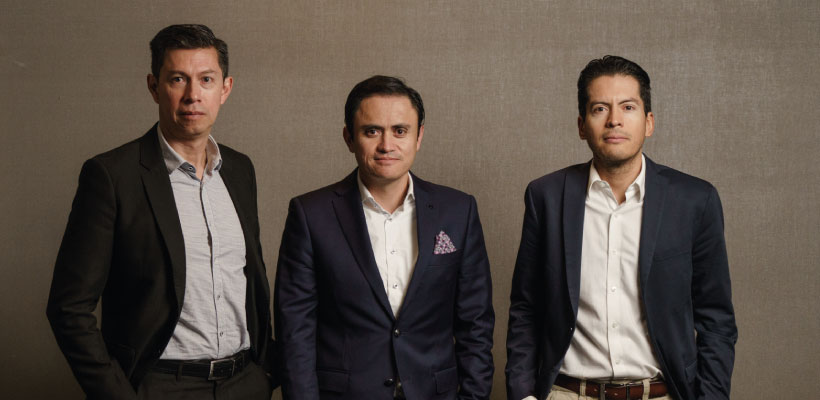Madrid 28027 – Spain
News
- Mobile network operators are forced to define their strategies to address 5G in view of the constant announcement of new tenders in the region.
- JSC Ingenium is the challenger vendor of Core 5G standalone technology for mobile operators.
Despite the benefits and known improvements that 5G technology will bring in terms of productivity, efficiency, job creation, etc., the adoption of 5G in Latin America is slower than expected, being, according to GSMA Intelligence, well below the average of the main regions worldwide. However, it is important to note that in recent months we are experiencing a constant trickle of official announcements by local governments of new 5G radio frequency spectrum tenders in countries such as Argentina, Mexico, Colombia, Uruguay, Costa Rica, Peru, Guatemala or Panama, in addition to those of Chile, Brazil or the Dominican Republic, which were already operating in 2022, and thus begin to draw a different scenario, which will change dramatically in the coming months.
At the same time, it is important to point out that, according to the GSMA, 4G is still the most widely used mobile communications technology in Latin America today. It is expected to reach its peak in 2024, reaching 74% of total mobile connections, and it will not be until 2025 when it will begin its decline in favor of a greater role for 5G. This data indicates that there are still issues to be solved and services to be rolled out, such as VoLTE/IMS. The switch-off of legacy 2G and 3G networks will force the remaining mobile operators to deploy this new technology in order to continue offering voice calls on next-generation networks. By the end of 2022, only 46% of mobile networks worldwide had deployed VoLTE, in Latin America only more than 20%, well below the global average.
This poses a major challenge for mobile operators in the region who are aware that there are still things to do in 4G, and at the same time, they have to make a decision on how they will evolve their networks for the imminent arrival of 5G. Unlike the transition from 3G to 4G, the arrival of 5G in the region, beyond a change of standards, will mean a disruption: a new way of working and doing things; a change that will affect mobile operators at all levels – core, radio, IP backhaul -. That will force them, above all, to define and specify how they are going to evolve their networks. They will have to define their 5G deployment strategies and make important decisions that will affect not only the deployment of the new technology itself in the future, but also the way in which they approach other legacy technologies, such as VoLTE/IMS.

Freddy Lara, MNO sales director of JSC Ingenium, talks about the company’s vision to face this great challenge and points out that “operators need to make these two scenarios compatible. Our company strategy in this regard is to carry out a 5G standalone deployment from the beginning, which is backward compatible, i.e. on the same network and on the same containerized deployment. The goal is that everything is managed in a unified way from the same Core, which is compatible with previous technologies, without the need for the operator to maintain two or even three networks in parallel”. Thus, in addition to the operational cost savings estimated at around 30% for the use of cloud-native technologies, there will also be cost savings in the operation and maintenance of the legacy networks themselves.
Lara adds “The competitive advantage of our value proposition is that it is based on a fully cloud-native solution, which operates on containers, and which will allow operators to have from the outset the capacity for adoption, implementation and customization of services necessary to manage them at the pace and speed demanded by the market”. The company is announcing the launch of its new 5G standalone in 2023 at a key moment when mobile operators must decide their future and is positioning itself as a 5G SA technology challenger vendor for mobile network operators in the region.
JSC Ingenium has been involved since its foundation in the Mobile Virtual Network Operator (MVNO) sector and has extensive international experience with more than 100 MVNOs and more than 600 sub-brands deployed and operational today. In its new growth strategy, it is committed to expanding its reach to mobile network operators, without abandoning its focus on virtual operators, and is beginning to compete with large international telco vendors such as Ericsson, Nokia and Huawei, with cutting-edge technology and human resources.
The company recently announced the joining of a first-class team, for their experience and knowledge of telco operators, Freddy Lara as MNO Sales Manager and Alejandro Suaza as Presales Engineer, who join the team led by Juan Carlos Buitrago, who, based in Bogota, Colombia, will take care of all the company’s commercial operations in the region.
JSC Ingenium is a global 4G/5G Core & BSS vendor for CSPs. Founded in 1996, the company is building the future of telco by delivering entire operation and management solutions to all kinds of Communications Service Providers (MNOs & MVNOs). Its offering includes a wide range of 3G, 4G and 5G Core Network technologies and Service Enablers, combined with business support systems (BSS) and tools for the supervision and operation of Mobile Operators.
JSC Ingenium makes a very strong effort in R&D, to which it allocates more than 45% of its technical resources. Currently, JSC Ingenium is firmly committed to 5G technologies, its philosophy -completely disruptive- and its ability to create a new concept of mobile networks.
Today JSC Ingenium has operational deployments in 15 countries worldwide, from Asia to Latin America, including major European countries, such as Spain, Italy, France and the UK, serving +100 operators worldwide.
For more information: JSC Ingenium: 5G / JSC Ingenium: MVNOs
